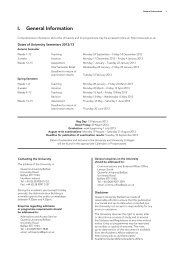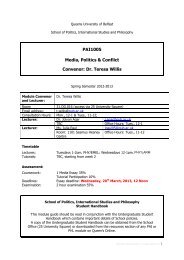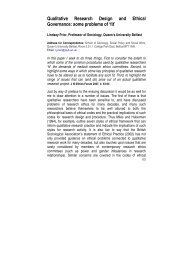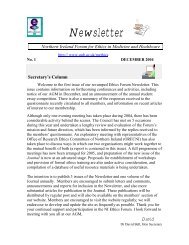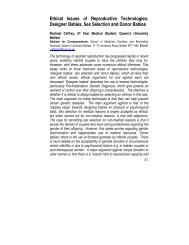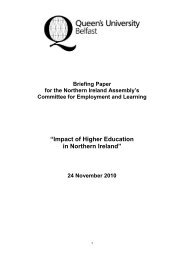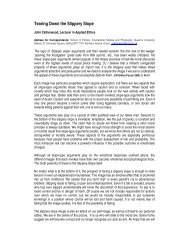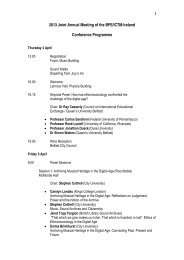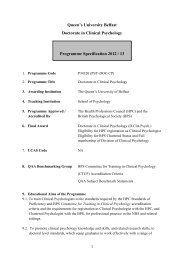Therapeutic Confidentiality and the Provision of Psychological ...
Therapeutic Confidentiality and the Provision of Psychological ...
Therapeutic Confidentiality and the Provision of Psychological ...
You also want an ePaper? Increase the reach of your titles
YUMPU automatically turns print PDFs into web optimized ePapers that Google loves.
16 (DoH/WO, 1999, para 31.6). 5 It is widely recognised <strong>and</strong> applied in<br />
<strong>the</strong> context <strong>of</strong> providing medical <strong>and</strong> psychological services for children<br />
in <strong>the</strong> healthcare sector 2, 11 .<br />
Children's rights or parental rights?<br />
Some agencies, such as Brook, base <strong>the</strong>ir practice firmly on <strong>the</strong>ir<br />
underst<strong>and</strong>ing <strong>of</strong> <strong>the</strong> Gillick principle. O<strong>the</strong>r agencies, particularly those<br />
working in schools, adopt a much more cautious approach, citing <strong>the</strong><br />
need to work in partnership with parents, as well as with children. One<br />
principle wheeled out to endorse this practice in a school setting is <strong>the</strong><br />
concept <strong>of</strong> being in loco parentis. This is an archaic piece <strong>of</strong> Victorian<br />
case law, dating from <strong>the</strong> last century, which requires school teachers to<br />
care for <strong>the</strong>ir pupils as would a 'careful fa<strong>the</strong>r', a principle adapted by<br />
degrees to 'careful parent' in subsequent case law. The concept carries a<br />
strong subliminal suggestion that, in acting for parents, schools should<br />
be mindful <strong>of</strong> parents' wishes <strong>and</strong> concerns. Offering a child-centred<br />
counselling service for young people without specifying a need for prior<br />
parental consent could be seen to run counter to this approach. In one<br />
version <strong>of</strong> <strong>the</strong> argument, parents have rights as well -including a right to<br />
family privacy <strong>and</strong> a right to be involved in decisions about <strong>the</strong>ir children.<br />
Providing confidential counselling to children without parental agreement<br />
would surely <strong>the</strong>n count as a major infringement <strong>of</strong> <strong>the</strong> rights <strong>of</strong> <strong>the</strong><br />
parents, to say <strong>the</strong> very least, according to this view.<br />
This argument is persuasive, but mistaken. Case law has shown that<br />
parents do not, in fact, have a strong case in claiming an infringement <strong>of</strong><br />
<strong>the</strong>ir parental rights by organisations such as Social Services. Under <strong>the</strong><br />
Children Act 1989, <strong>the</strong> concept <strong>of</strong> 'parental rights' has been decisively<br />
displaced by that <strong>of</strong> 'parental responsibility'. This is a set <strong>of</strong> powers <strong>and</strong><br />
duties which can be determined by <strong>the</strong> courts, <strong>and</strong>, for example, can be<br />
acquired in this way by a key figure in a child's life, such as a<br />
gr<strong>and</strong>parent. The emphasis carried by this concept is much more on <strong>the</strong><br />
41



